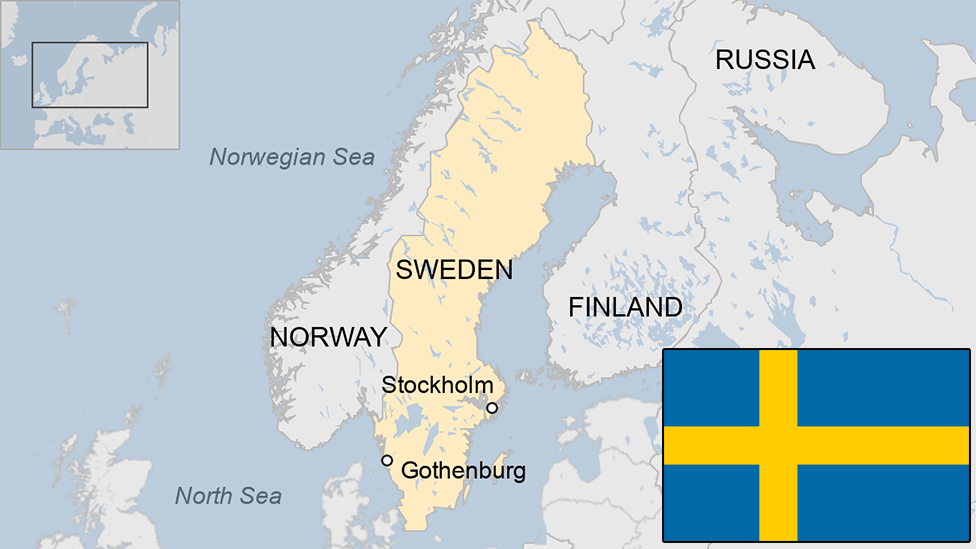Swedish King Carl Gustaf removes grandchildren from royal house
- Published

The announcement marks a major change for Sweden's royal house
Sweden's king has removed five of his grandchildren from the royal house.
The decision by King Carl XVI Gustaf means the children no longer have the title of royal highness and are not expected to perform official royal duties.
They will remain members of the royal family and retain their titles of dukes and duchesses.
The change has not affected the king's two grandchildren who are in direct line to the throne.
Observers say the move reflects a wider view that there is no need to pay so many members of the royal family for official duties.
Which royals are involved?
The decision, announced in a statement published by the Royal Court of Sweden,, external regards the two sons of Prince Carl Philip and the three children of Princess Madeleine.
As well as relieving them of their royal duties, the change means that the children - aged between one and five - will not be entitled to receive the taxpayer-funded annual sum known as appanage which is given to members of the royal house.
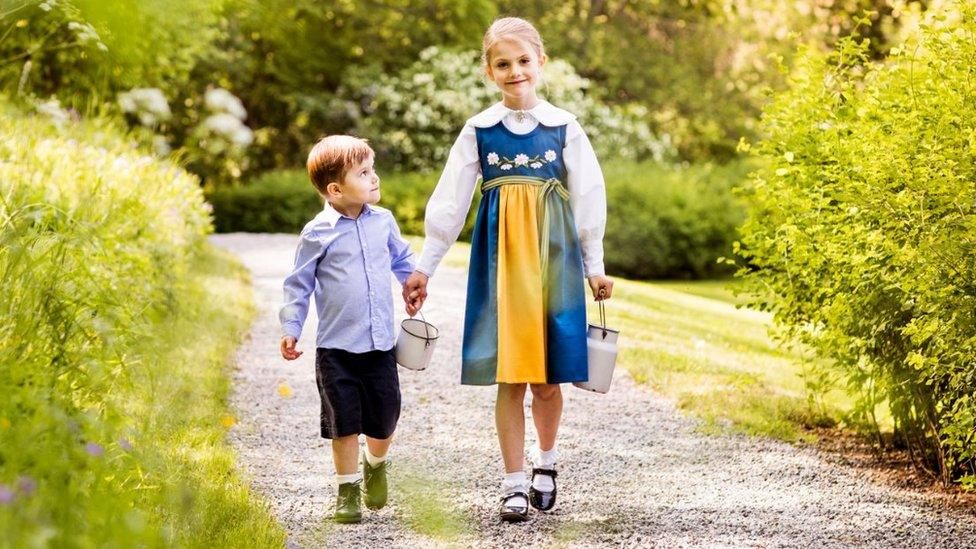
The decision does not affect Princess Estelle and Prince Oscar, the children of Crown Princess Victoria and Prince Daniel
Royal expert Roger Lundgren said the decision followed scrutiny over the increasing number of royals. "Parliament announced a few years ago that it would have a review of some principles regarding the monarchy. One thing was the size of the family," he said.
He said the king had taken action on his own to deal with the issue and compared the move to reports that the UK's Prince of Wales wanted to "streamline the Royal Family".
He also likened the new role of the five Swedish royals to that of princesses Beatrice and Eugenie, who have pursued their own careers.
What does it mean?
Swedish historian Dick Harrison said the decision was likely made to meet the modern needs of the family, explaining that the Royal House had grown larger than it had been in 100 years and that many thought there was no need to pay so many members or to have them available for official duties.
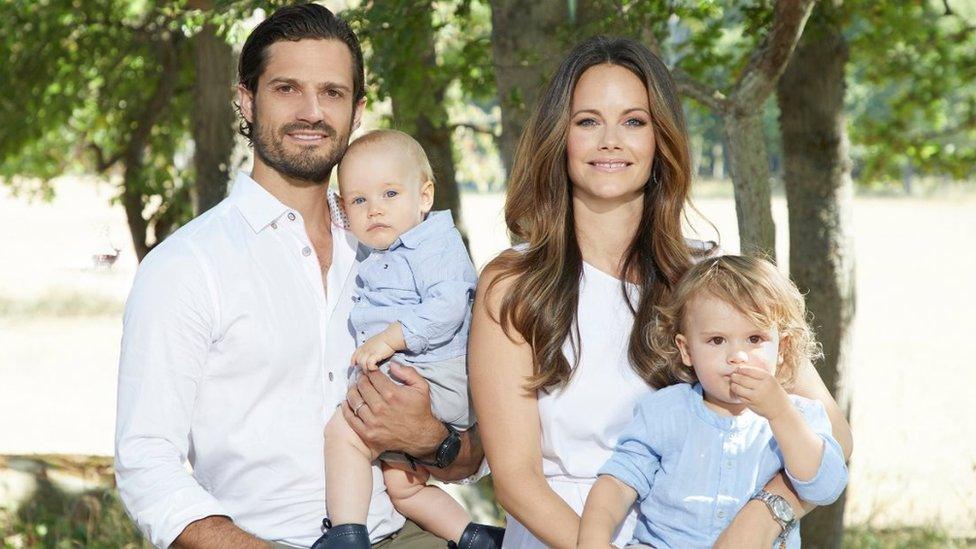
Among the grandchildren being removed from the royal house are princes Alexander and Gabriel (R), sons of Carl Philip and Sofia
Being removed from the royal house would also allow the youngsters to "live ordinary lives", he said.
"They don't have to bother with being fenced in. They are made into ordinary people but still members of the royal club," he told the BBC.
Prince Carl Philip married Princess Sofia at Stockholm's Royal Palace in 2015
He added that the children, who are still princes and princesses, retained a "theoretical claim to the throne" and would likely continue to appear at social gatherings through their titles.
Mr Harrison said there was also ongoing controversy about the funding of the royal house in Sweden but that it had not yet focused on the young children. "The king is preventing a discussion that otherwise would have taken place," he said.
Sweden is just one of several European countries to have a monarchy, along with the UK, Norway, Denmark, Spain, the Netherlands, Belgium and Luxembourg. The traditions and number of people in royal roles vary between countries.
The move on Monday does not affect the position of the children's parents. Princess Madeleine, Prince Carl Philip and his wife Princess Sofia "will continue their work in the non-profit foundations and organisations which they have founded or in which they are involved. In addition, they will perform official duties to the extent decided by His Majesty," the statement said.
It noted that King Carl XVI Gustaf and his wife Queen Silvia, and Crown Princess Victoria and her husband Prince Daniel were "Sweden's highest representatives".
- Published5 February 2019
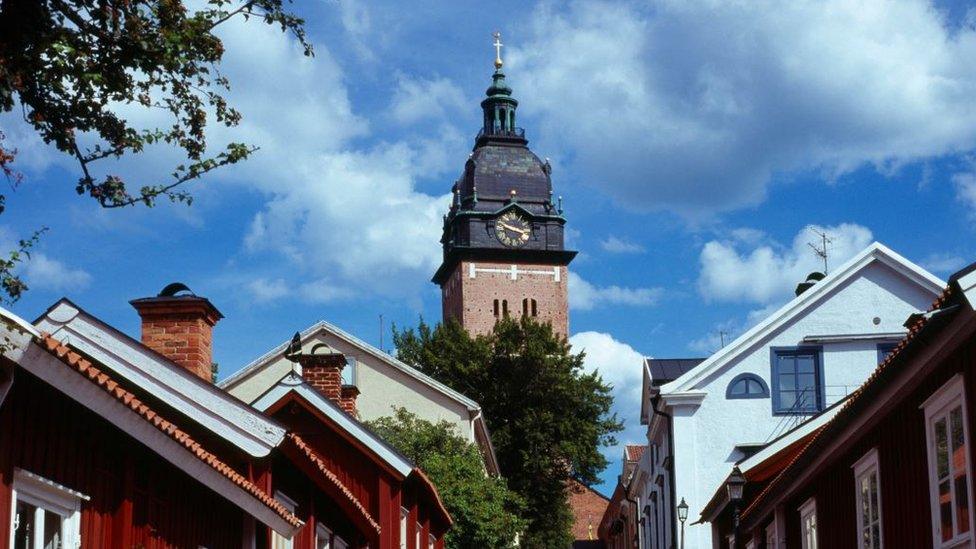
- Published30 October 2017
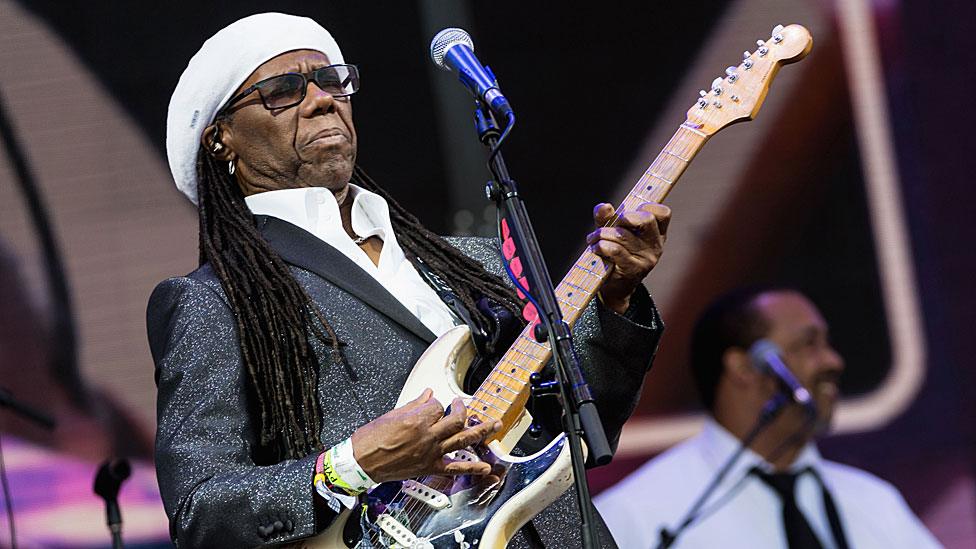
- Published29 March 2023
